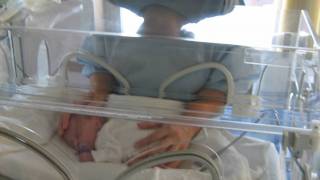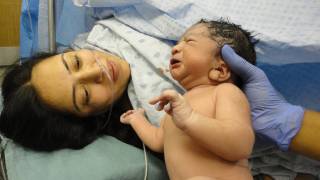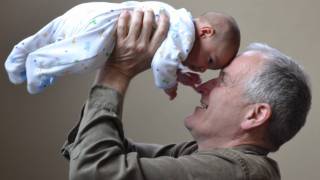Tdap Vaccine Delivers Best Protection From Whooping Cough Between 27 and 30 Weeks

The risk of pertussis (whooping cough) is highest in infants who are too young to have completed their primary immunization series, which is between 6 months of age or younger, and they are at highest risk of developing life-threatening complications.
Does maternal immunization with Tetanus, Diphtheria, and Acellular Pertussis (Tdap) vaccine during the 3rd trimester of pregnancy yield high concentrations of pertussis antibodies at birth?
Is there an optimal gestational age for the Tdap immunization?
These are two vaccination questions often debated by expecting women and their doctors.
A new prospective cohort study of 626 pregnancies and newborn babies whose mothers received a Tdap vaccination during the 3rd trimester had a geometric mean concentration of pertussis toxin antibodies in cord blood of 47.3 IU/mL vs 12.9 IU/mL for unvaccinated women and babies.
This difference is statistically significant.
Additionally, the concentrations of cord blood antibodies were found to be the highest when the pregnant women were immunized at 27 to 30 weeks.
This study's results are important since a recent study found only 30 percent of pregnant women whose infants developed pertussis were immunized with the Tdap vaccine, according to the Centers for Disease Control and Prevention (CDC).
To reduce the incidence of pertussis in infants, the CDC recommends that pregnant women receive Tdap vaccine during 27–36 weeks’ gestation of each pregnancy.
Pertussis is known for uncontrollable, violent coughing which often makes it hard to breathe. After cough fits, someone with pertussis often needs to take deep breaths, which result in a “whooping” sound, says the Centers for Disease Control and Prevention (CDC).
Whooping cough starts like the common cold, with a runny nose or congestion, sneezing, a mild cough, or fever. But after 1 to 2 weeks, severe coughing can begin.
Unlike the common cold, whooping cough can become a series of violent and rapid coughing fits that continue for weeks. These coughing fits force all of the air out of the lungs.
People make a loud “whooping” sound when they are finally able to breathe again.
That sound is how whooping cough got its name. However, it is important to know that many babies with whooping cough don’t cough at all. Instead, it can cause them to stop breathing.
Whooping cough vaccines work well, but cannot prevent all cases of this serious disease, says the CDC.
Additionally, a recent study reported children were not at an increased risk of autism after their mothers received a Tdap vaccination during pregnancy.
Unfortunately, the design of this study doesn't allow for cause-and-effect interpretations of the findings, said these researchers.
The study's team of C. Mary Healy, M.D., Baylor College of Medicine and others includes conflict of interest and funding/support disclosures.
Our Trust Standards: Medical Advisory Committee
- Association Between Third-Trimester Tdap Immunization and Neonatal Pertussis Antibody Concentration
- Safety and Immunogenicity of Tetanus Diphtheria and Acellular Pertussis (Tdap) Immunization During Pregnancy in Mothers
- Timing of 3rd-Trimester Maternal Tdap Immunization Associated With Levels of Whooping Cough Antibodies in Newborns
- Pertussis (Whooping Cough)
- Prenatal Tdap Vaccination Not Associated with an Increased Autism Risk


























